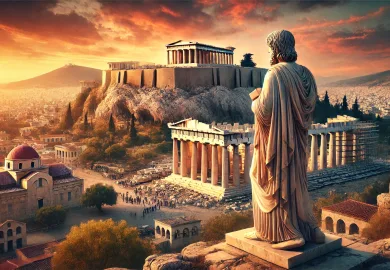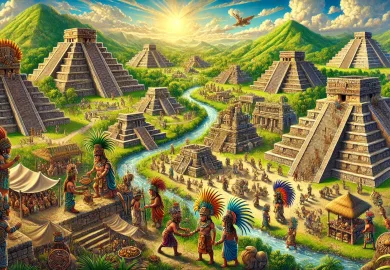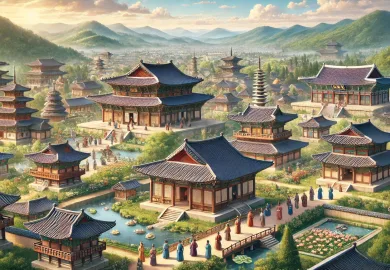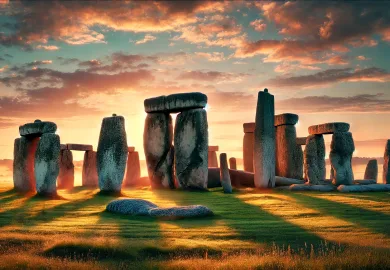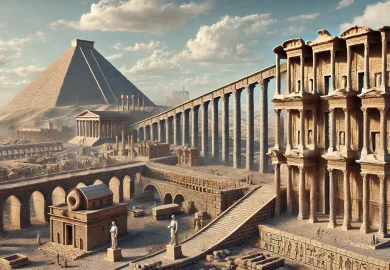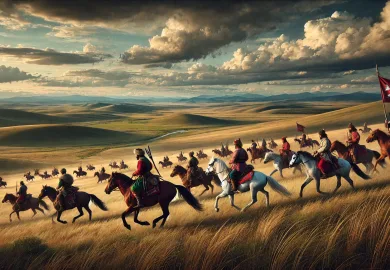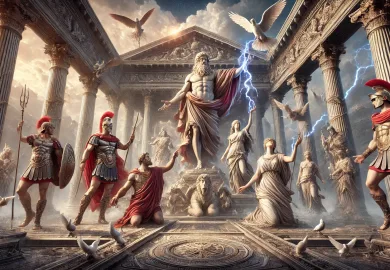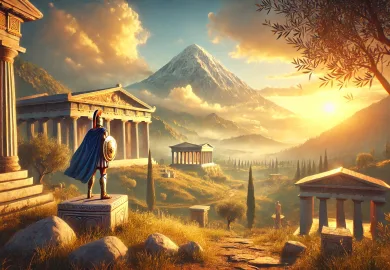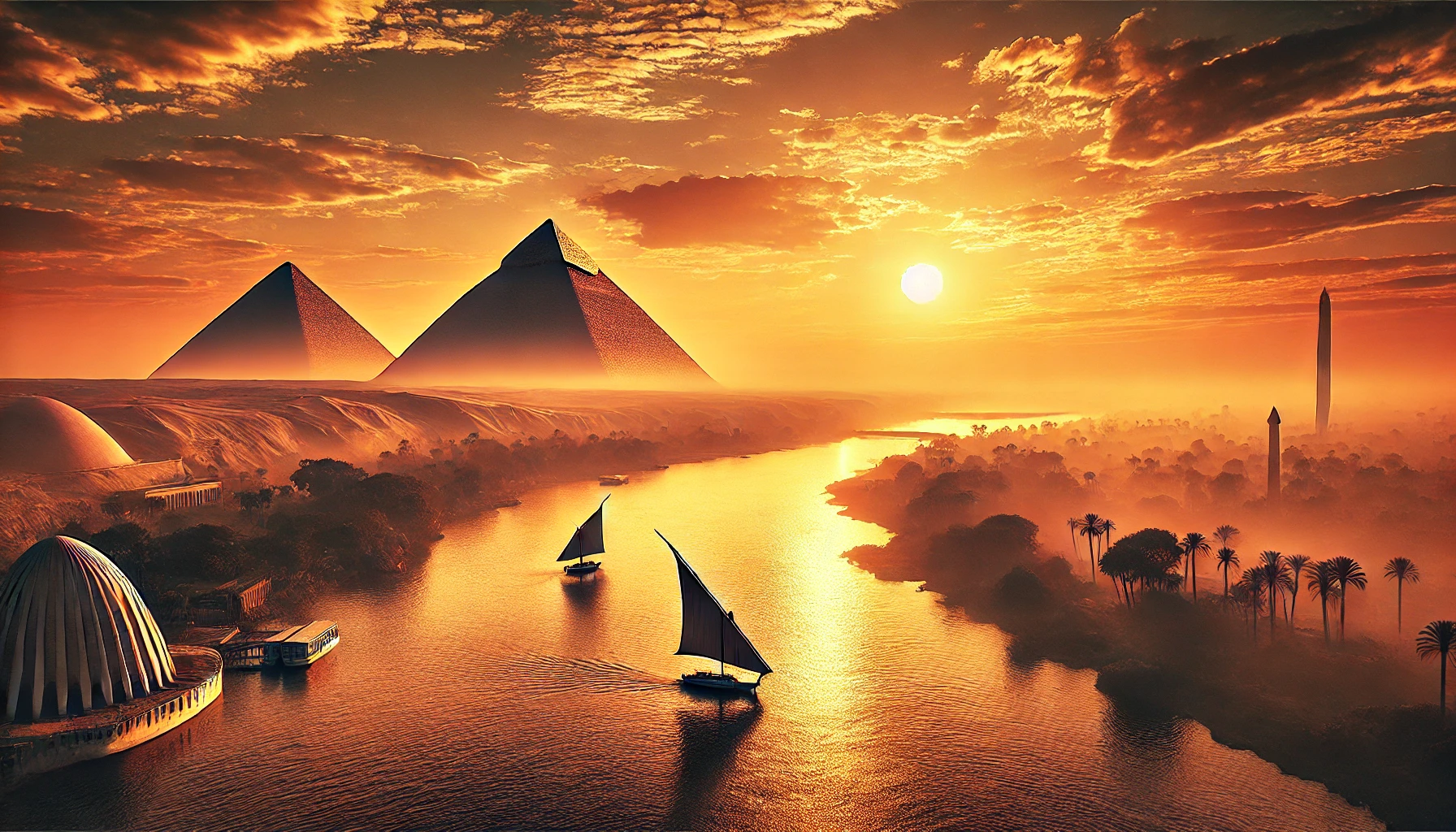
Ancient Egypt, one of the most fascinating and enduring civilizations in human history, flourished along the Nile River for nearly three millennia, from around 3100 B.C. to 30 B.C. This civilization left an indelible mark on the world, influencing everything from architecture and art to religion and governance. Ancient Egypt’s culture was a rich tapestry woven from the threads of its geography, religion, social structure, and innovation. To truly appreciate the grandeur of this ancient civilization, it is essential to explore its key cultural aspects that have captivated the imagination of people for centuries.
The Role of the Nile River in Shaping Egyptian Civilization
The Nile River, the lifeblood of Ancient Egypt, was central to the development of its culture and society. Without the Nile, Egypt as we know it would not have existed. This mighty river provided the resources necessary for sustaining life, from drinking water and irrigation for crops to transportation and trade routes.
The annual flooding of the Nile, known as the inundation, was crucial for agriculture. The river’s floodwaters deposited rich, fertile silt on the land, making it possible to grow crops in an otherwise arid environment. This cyclical flooding was so reliable that the Egyptians developed a sophisticated calendar based on it, which guided their agricultural activities. The abundance of food produced along the Nile allowed for population growth, urbanization, and the emergence of a complex society.
Beyond agriculture, the Nile was also a vital highway for trade and communication. Boats traveled up and down the river, transporting goods, people, and ideas. This facilitated the exchange of products like gold, papyrus, grain, and linen, both within Egypt and with neighboring regions. The Nile’s central role in daily life and its influence on the economy and religion made it a sacred symbol in Egyptian culture, often personified as the god Hapi.
The Pantheon of Egyptian Gods and Goddesses
Religion was the cornerstone of Ancient Egyptian culture, permeating every aspect of life. The Egyptians were polytheistic, worshipping a vast array of gods and goddesses who controlled every facet of the natural and supernatural world. These deities were often depicted in human form, sometimes with animal heads, representing different aspects of life and the universe.
Among the most important deities was Ra, the sun god, who was considered the king of all gods and the creator of the world. Ra was believed to sail across the sky during the day in his solar boat and journey through the underworld at night. The sun’s daily cycle was seen as a metaphor for the cycle of life, death, and rebirth, which was a central theme in Egyptian religion.
Another significant god was Osiris, the god of the afterlife, death, and resurrection. According to myth, Osiris was murdered by his brother Seth but was resurrected by his wife, Isis. This story symbolized the eternal nature of life and was closely linked to the belief in the afterlife, which was a fundamental aspect of Egyptian spirituality. The Egyptians believed that after death, the soul would undergo a journey to the afterlife, where it would be judged by Osiris. If deemed worthy, the soul would enter a blissful eternity in the Field of Reeds.
The Egyptian pantheon also included Hathor, the goddess of love, music, and motherhood; Anubis, the god of mummification and the afterlife; and Thoth, the god of writing and knowledge, among many others. Temples dedicated to these gods were scattered throughout Egypt, and religious rituals, festivals, and offerings were a regular part of daily life. The gods and goddesses were not just distant entities but were believed to be actively involved in the lives of the people, guiding and protecting them.
The Art and Architecture of Ancient Egypt
The art and architecture of Ancient Egypt are among the most iconic and recognizable in the world. The Egyptians believed that art was a way to communicate with the gods and ensure a place in the afterlife, which is why much of their art was religious in nature. Egyptian art is characterized by its highly stylized and symbolic forms, with strict conventions that dictated the way figures were portrayed.
One of the most famous examples of Egyptian art is the Great Sphinx of Giza, a colossal statue with the body of a lion and the head of a pharaoh, believed to represent the pharaoh Khafre. This statue, along with the nearby pyramids, is a testament to the Egyptians’ advanced engineering skills and their belief in the divine nature of their rulers. The pyramids themselves, especially the Great Pyramid of Giza, are among the most remarkable architectural achievements of the ancient world. These massive tombs were built to ensure the pharaohs’ safe passage to the afterlife and to demonstrate their power and divine status.
Another key aspect of Egyptian art is the use of hieroglyphics, a complex system of writing that used pictorial symbols to represent sounds, words, and concepts. Hieroglyphics were used in religious texts, tomb inscriptions, and monumental architecture, serving both as a means of communication and as a sacred art form. The Rosetta Stone, which was instrumental in deciphering hieroglyphics, highlights the importance of this writing system in preserving Egyptian culture and history.
In addition to monumental structures, the Egyptians also excelled in the creation of smaller art forms, such as jewelry, pottery, and statues. These objects were often made from precious materials like gold, lapis lazuli, and faience, and were intricately designed with symbolic motifs. Artisans were highly skilled, and their work reflected the values and beliefs of Egyptian society. Whether in grand temples or intimate personal items, Egyptian art was a powerful expression of their worldview and religious devotion.
The Social Structure and Daily Life of the Egyptians
The social structure of Ancient Egypt was highly stratified, with a clear hierarchy that dictated the roles and responsibilities of individuals within society. At the top of this hierarchy was the pharaoh, who was considered both a divine ruler and a living god. The pharaoh held absolute power over the land and its people, and his word was law. The pharaoh was also the chief priest, responsible for maintaining the balance between the gods and the people.
Below the pharaoh were the nobility and priests, who were often members of the royal family or high-ranking officials. These individuals held significant power and wealth, overseeing the administration of the kingdom, religious ceremonies, and large-scale construction projects. Priests, in particular, played a crucial role in society, as they were responsible for performing rituals, maintaining temples, and ensuring the favor of the gods.
The middle class in Egypt consisted of scribes, artisans, and merchants. Scribes were highly respected because they were literate and responsible for keeping records, drafting legal documents, and managing administrative tasks. Artisans and craftsmen were skilled workers who created the beautiful art, jewelry, and architecture for which Egypt is famous. Merchants engaged in trade, both within Egypt and with neighboring regions, bringing in goods such as incense, spices, and luxury items.
The majority of the population, however, was made up of peasants and laborers. These individuals worked the land, producing the food that sustained the kingdom. They were also conscripted to work on large construction projects, such as the pyramids, during periods when they were not needed for agricultural work. Despite their low status, peasants were crucial to the economy and the functioning of society.
Daily life in Ancient Egypt was deeply connected to the rhythms of the Nile and the agricultural cycle. The majority of Egyptians lived in simple mud-brick houses, with few possessions beyond basic furniture and tools. Diets were simple, consisting mainly of bread, beer, vegetables, and occasionally meat or fish. Religion was an integral part of everyday life, with rituals, offerings, and festivals being a regular occurrence. Family was also central to Egyptian society, with a strong emphasis on marriage, children, and the home.
The Legacy of Ancient Egyptian Culture
The legacy of Ancient Egypt is vast and continues to influence modern culture in various ways. The achievements of the Egyptians in fields such as architecture, art, medicine, and mathematics have had a lasting impact on subsequent civilizations, including the Greeks and Romans. The preservation of Egyptian culture through their art, literature, and monumental architecture has provided invaluable insights into the beliefs, practices, and daily life of this ancient civilization.
One of the most enduring aspects of Egyptian culture is their approach to the afterlife. The elaborate tombs, mummification practices, and funerary art were all designed to ensure a successful journey to the afterlife and eternal existence in the realm of the gods. These practices have fascinated people for centuries and have been the subject of extensive study and exploration.
The rediscovery of Ancient Egypt in the modern era, particularly after the decipherment of hieroglyphics and the excavation of tombs such as that of Tutankhamun, has reignited interest in this ancient civilization. Egyptology, the study of Ancient Egyptian history, language, and culture, has become a thriving field, with new discoveries continuing to shed light on this enigmatic civilization.
Furthermore, the influence of Egyptian culture can be seen in art, literature, and popular culture. From the iconic image of the pyramids and the Sphinx to the enduring fascination with mummies and pharaohs, Ancient Egypt continues to captivate the imagination of people around the world. The symbols and motifs of Egyptian art, such as the ankh, the scarab, and the eye of Horus, have become part of global cultural iconography.
In conclusion, the culture of Ancient Egypt, with its deep connection to the Nile, its pantheon of gods and goddesses, its remarkable achievements in art and architecture, and its highly structured society, represents one of the most significant and influential civilizations in human history. The legacy of this ancient culture continues to inspire and intrigue, reminding us of the profound and lasting impact that Ancient Egypt has had on the world.
Warm and Welcoming People
In Egypt, one of the most cherished aspects that visitors frequently remark on is the warmth and hospitality of its people. The locals of Egypt have a deeply rooted tradition of welcoming outsiders with open arms, a practice embedded in the culture for generations. This warm reception goes beyond just friendly smiles; it’s about genuine interest and respect, making tourists feel at home from the moment they arrive.
Whether in bustling cities or quaint rural villages, the people of Egypt are known for going out of their way to make visitors feel comfortable. It’s common for locals to offer directions, share insights about hidden spots, or even invite travelers for a meal. This openness to strangers is not only a mark of respect but also a way to share their culture and heritage, allowing tourists to experience the authentic soul of the country.
This warmth makes a visit to Egypt more than just a journey to a new place; it becomes a memorable experience of human connection. By the end of their stay, many travelers feel they’re leaving not just a beautiful landscape but also newfound friends. It’s this unique combination of natural beauty and heartfelt hospitality that makes Egypt an unforgettable destination, resonating in the memories of everyone who has had the pleasure of experiencing it.


